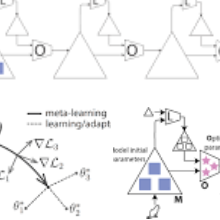Supervisory signals are a critical resource for training learning to rank models. In many real-world search and retrieval scenarios, these signals may not be readily available or could be costly to obtain for some queries. The examples include domains where labeling requires professional expertise, applications with strong privacy constraints, and user engagement information that are too scarce. We refer to these scenarios as sparsely supervised queries which pose significant challenges to traditional learning to rank models. In this work, we address sparsely supervised queries by proposing a novel meta learning to rank framework which leverages fast learning and adaption capability of meta-learning. The proposed approach accounts for the fact that different queries have different optimal parameters for their rankers, in contrast to traditional learning to rank models which only learn a global ranking model applied to all the queries. In consequence, the proposed method would yield significant advantages especially when new queries are of different characteristics with the training queries. Moreover, the proposed meta learning to rank framework is generic and flexible. We conduct a set of comprehensive experiments on both public datasets and a real-world e-commerce dataset. The results demonstrate that the proposed meta-learning approach can significantly enhance the performance of learning to rank models with sparsely labeled queries.
翻译:暂无翻译



